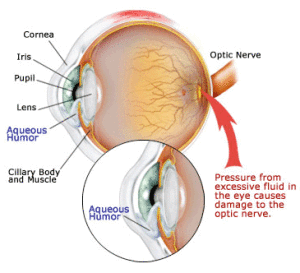
As the leading cause of irreversible blindness in the United States and the world, glaucoma is a serious group of diseases that is projected to affect nearly 4.2 million Americans by 2030, according to the National Eye Institute. Unfortunately, most people are simply not aware that they have open angle glaucoma until it is too late. Most patients will not feel any pain or notice peripheral visual loss until the disease is extremely advanced. This is the reason that regular eye exams are key to preventing vision loss. If diagnosed early, there are many treatment options available to prevent vision loss. In order to help spread awareness of this life-changing disease, the expert ophthalmologists at USC Roski Eye Institute would like to encourage people of all ages to share the following information as well as schedule regular eye exams for themselves and their loved ones.
Identifying open angle glaucoma
Glaucoma comprises a group of diseases that cause damage to the optic nerve within the eye. In some cases, this involves abnormal eye pressure. The most common type of glaucoma is open-angle glaucoma, in which the drainage angle of the eye appears anatomically normal but still results in eye pressure that is too high for that particular person.
One of the most unfortunate aspects of open angle glaucoma is that the disease typically does not cause symptoms and therefore does not trigger a patient to seek medical help early enough in the disease. Therefore, it is crucial to have your eyes examined on a regular basis by an experienced ophthalmologist to detect the condition and provide treatment if necessary to prevent any additional optic nerve damage.
Who is at risk for open angle glaucoma?
While the exact cause of glaucoma is not fully understood, the following factors have been found to put certain individuals at a higher risk for the disease than others. If you or a loved one has any of the risk factors below, or is over the age of 40, schedule a comprehensive eye exam.
- Family history of glaucoma
- Older age
- African or Latino ancestry
- Elevated eye pressure
- Myopia (near sightedness)
- Thin cornea
- Diabetes
- Hypertension
Expert vision care at the USC Roski Eye Institute
To make an appointment at the USC Roski Eye Institute, please call (323) 442-6335 or contact us to schedule a consultation today.
Topics
